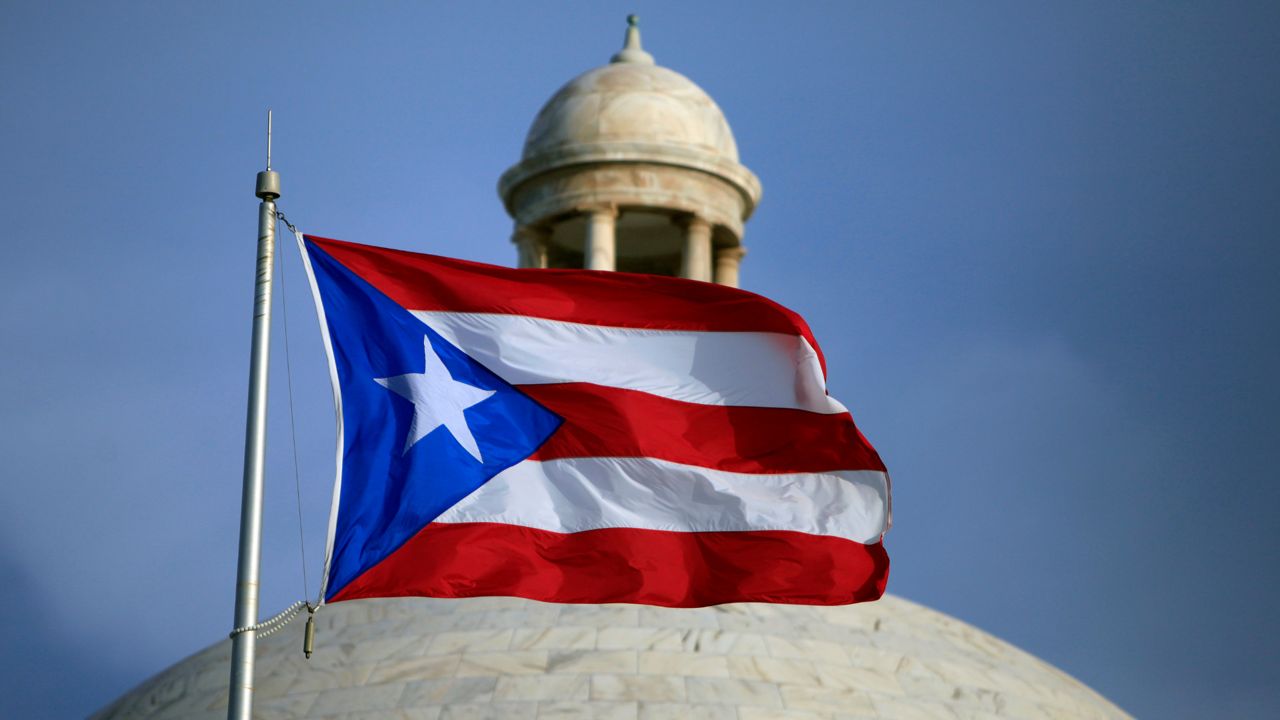ORLANDO, Fla. — The voting power of Central Florida’s Puerto Rican population came to full light two weeks ago.
What You Need To Know
- 2018 data: About 400,000 Puerto Ricans live in 4 Central Florida counties
- According to survey, 90 percent of Puerto Ricans in US are registered to vote
- Coronavirus pandemic, discrimination, statehood stand among top issues
- RELATED: Hurricane Maria Evacuee: "I Lost Everything, But I Didn't Lose Hope"
During a campaign stop in Kissimmee on September 16, Democratic presidential candidate Joe Biden expressed support for Puerto Rican statehood and pledged disaster relief and investment in the island’s continued efforts to recover from Hurricane Maria.
Two days later, the administration of President Donald Trump said it would provide $13 billion in aid to help the U.S. commonwealth rebuild.
“We are being recognized as an important voting force,” said Arnaldo Oliveras, a Puerto Rico native and Orlando businessman. “There’s potential here for changing the outcome, I think, if we vote.”
Central Florida’s Puerto Rican voters indeed could determine the next president.
As perhaps the ultimate swing state, Florida has voted for the winner in the past six presidential elections, University of Central Florida political science professor Aubrey Jewett pointed out to Spectrum News this week.
Jewett called the I-4 corridor the swing region of the swing state.
The numbers suggest that Puerto Rican residents could provide the swing vote.
According to 2018 data from UCF’s Puerto Rico Research Hub, the counties of Orange, Osceola, Seminole, and Volusia boasted a combined Puerto Rican population of 413,835 — some 35 percent of Florida’s Puerto Rican residents. Another 70,621 lived in Polk County.
It’s unclear whether those numbers account for many residents who returned to Puerto Rico after moving here in the wake of Hurricane Maria, which devasted the island three years ago.
But experts point out that Central Florida held a large Puerto Rican population long before the hurricane, and that population remains among the largest in the country.
In Florida, it doesn’t take much to swing a presidential election. In 2016, Trump beat Hillary Clinton by about 120,000 votes. In the contested race of 2000, George W. Bush beat Al Gore by 537 votes and won the presidency.
“Turnout, I think that’s going to be a huge issue,” said UCF sociology professor Fernando Rivera, founding director of the Puerto Rico Research Hub. “But I think the Puerto Rican population in this I-4 corridor has the potential to make a significant impact on the final result.”
In Puerto Rico, residents aren’t allowed to vote in the presidential election. But as U.S. citizens, they’re eligible to vote in U.S. elections once they become mainland residents.
A national survey of Puerto Ricans who live in the U.S. reported that 90 percent are registered to vote.
The survey, published by the Center for American Progress Action Fund last week, said 51 percent identified as Democrats, 17 percent as Republicans, and 25 percent as independents. The rest identified with a third party.
The survey highlighted the Trump administration’s response to the coronavirus as the top concern of Puerto Ricans living in the U.S.
Some 69 percent of respondents said they either strongly disapproved of, or somewhat disapproved of Trump’s handling of the pandemic.
Another top issue: discrimination against immigrants, including Latinos. Other important issues included health care, unemployment, job creation, income, and education.
And there’s more.
“We are a little bit dissatisfied with the way that Maria was handled,” said Oliveras, owner of Orlando-based 180 Commercial Real Estate and Business Advisors. “We still have houses without roofs. And if this were happening in a state, things would have been (done) differently. It’s just the way that the Commonwealth of Puerto Rico is structured. We are a territory.
"So, unless we earn and get statehood, these things are bound to happen.”
Rivera, the UCF professor, sees the issue of statehood as complicated. Many who live in Puerto Rico support the commonwealth and feel as though residents there should determine their own status, he said.
When he talks with local Puerto Rican residents about issues, he said, “they say, it’s housing, making sure we get over this COVID-19 ... so it’s not necessarily the statehood issue.”
Regarding the pandemic, Rivera pointed out that, “the numbers seem to suggest brown and Black communities have been affected more severely by this. So, the impact of it is obviously on the minds of Puerto Ricans.”
The national survey from last week suggested that both presidential candidates, despite their recent overtures, have work to do to win the vote of Puerto Ricans.
Some 54 percent of respondents said they had yet to hear personally from a political party or nonprofit group on behalf of a candidate.
The survey also said most respondents expressed concern about being exposed to the coronavirus if they voted in person.
Said Rivera: “I think that’s going to be the challenge for both presidential campaigns — making the case and making sure that people go out and vote.”
Spectrum News Reporter Justin Soto contributed to this report.




